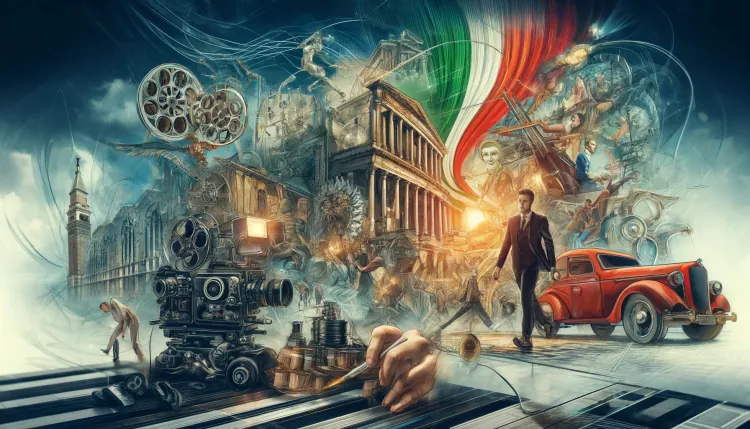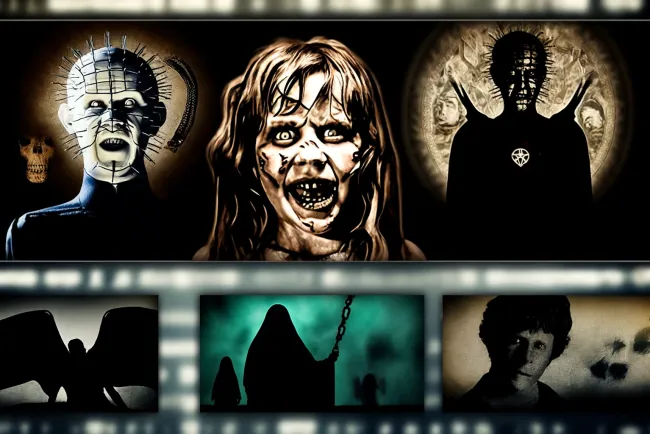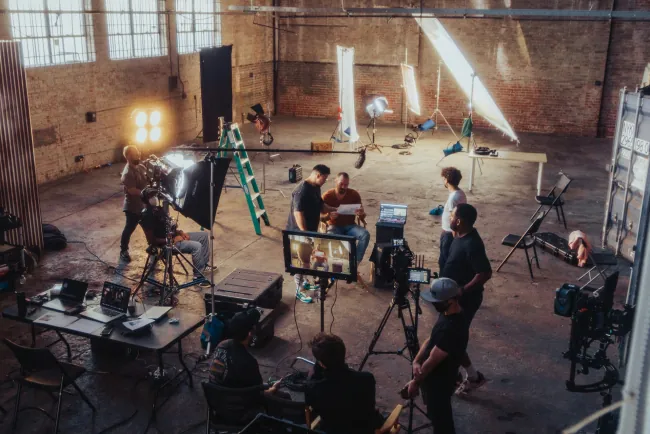Modern Italian Cinema: Blending Tradition with Cutting-Edge Innovation
How contemporary Italian cinema merges traditional aesthetics with modern themes, making significant impacts globally

-
Introduction
- Overview of the dynamic nature of contemporary Italian cinema.
-
Renaissance in the New Millennium
- The resurgence of Italian cinema: key factors and characteristics.
- Emphasis on aesthetic qualities and social commentary.
-
Prominent Themes and Directors
- Exploration of modern societal issues: immigration, economic disparity, family dynamics.
- Paolo Sorrentino: style and major works.
- Matteo Garrone: focus on realism and societal undercurrents.
-
Technological Advancements and International Collaborations
- Adoption of digital filmmaking and its impact on Italian cinema.
- Increase in international collaborations and their influence on reaching global audiences.
-
Film Festivals and Global Recognition
- Role of film festivals in promoting Italian cinema internationally.
- Specific achievements and recognitions at major film festivals.
-
Conclusion
- The enduring relevance and influence of Italian cinema in the global context.
-
FAQs
- How has contemporary Italian cinema evolved from traditional filmmaking?
- What are the major themes in modern Italian films?
- Which Italian films or directors have gained international acclaim recently?
Introduction Contemporary Italian cinema is a testament to the enduring spirit of Italian artistry, skillfully intertwining its rich cinematic legacy with innovative storytelling techniques and themes. Today, Italian filmmakers not only preserve the aesthetic and thematic depths of their forebears but also venture into new territories, securing Italian cinema’s place on the international stage.
Renaissance in the New Millennium The new millennium has marked a renaissance for Italian cinema, characterized by a renewed focus on both the artistic qualities of film and the exploration of pressing social issues. This period has seen Italian filmmakers garner international acclaim for their films that blend stunning cinematography with complex character studies and narratives that mirror Italy’s current socio-economic context.
Prominent Themes and Directors In modern Italian cinema, a significant theme is the critical examination of society. Films frequently tackle issues such as immigration, economic disparity, and modern family dynamics, reflecting a contemporary continuation of Neorealism’s legacy.
Paolo Sorrentino: A Modern Maestro Paolo Sorrentino stands out as a leading figure in this era. His Oscar-winning "The Great Beauty" exemplifies his approach, blending rich visuals with intricate narratives to explore profound life themes. Sorrentino's work captures the essence of modern Italian concerns while wrapped in the beauty of cinematic art.
Matteo Garrone and Social Realism Matteo Garrone offers a grittier view of Italian life, focusing on the impacts of organized crime as seen in his acclaimed work "Gomorrah." Garrone’s films delve into the darker facets of Italian society, presenting a counter-image to the nation’s often-idyllic portrayal.
Technological Advancements and International Collaborations The shift towards digital filmmaking has opened new avenues for Italian directors, allowing for greater experimental freedom and production flexibility. Moreover, increasing international collaborations have expanded the audience reach of Italian films, further solidifying their place in global cinema.
Film Festivals and Global Recognition Italian cinema remains a fixture at international film festivals, which play a crucial role in maintaining Italy’s influential status in the film world. The consistent recognition and accolades Italian films receive at these events highlight the global appeal and artistic significance of Italy’s cinematic contributions.
Conclusion Contemporary Italian cinema remains vibrantly diverse in style and substance. By fusing traditional cinematic techniques with modern narratives and technologies, Italian filmmakers continue to ensure the relevance and impact of their work, captivating audiences worldwide. This ongoing evolution is a testament to the resilience and adaptability of Italian cinema, promising a bright future for its filmmakers and audiences.
FAQs
- How has contemporary Italian cinema evolved from traditional filmmaking?
- Contemporary Italian cinema has evolved by integrating modern digital technologies and narrative styles with Italy's rich cinematic traditions, focusing on both aesthetic and thematic innovations.
- What are the major themes in modern Italian films?
- Modern Italian films often explore themes of social disparity, immigration, personal and societal challenges, reflecting contemporary issues through a critical lens.
- Which Italian films or directors have gained international acclaim recently?
- Directors like Paolo Sorrentino with "The Great Beauty" and Matteo Garrone with "Gomorrah" have achieved significant international acclaim, highlighting contemporary Italian cinema on the global stage.
For more insights into the vibrant world of Italian cinema, visit Kiksee Magazine.
What's Your Reaction?






















